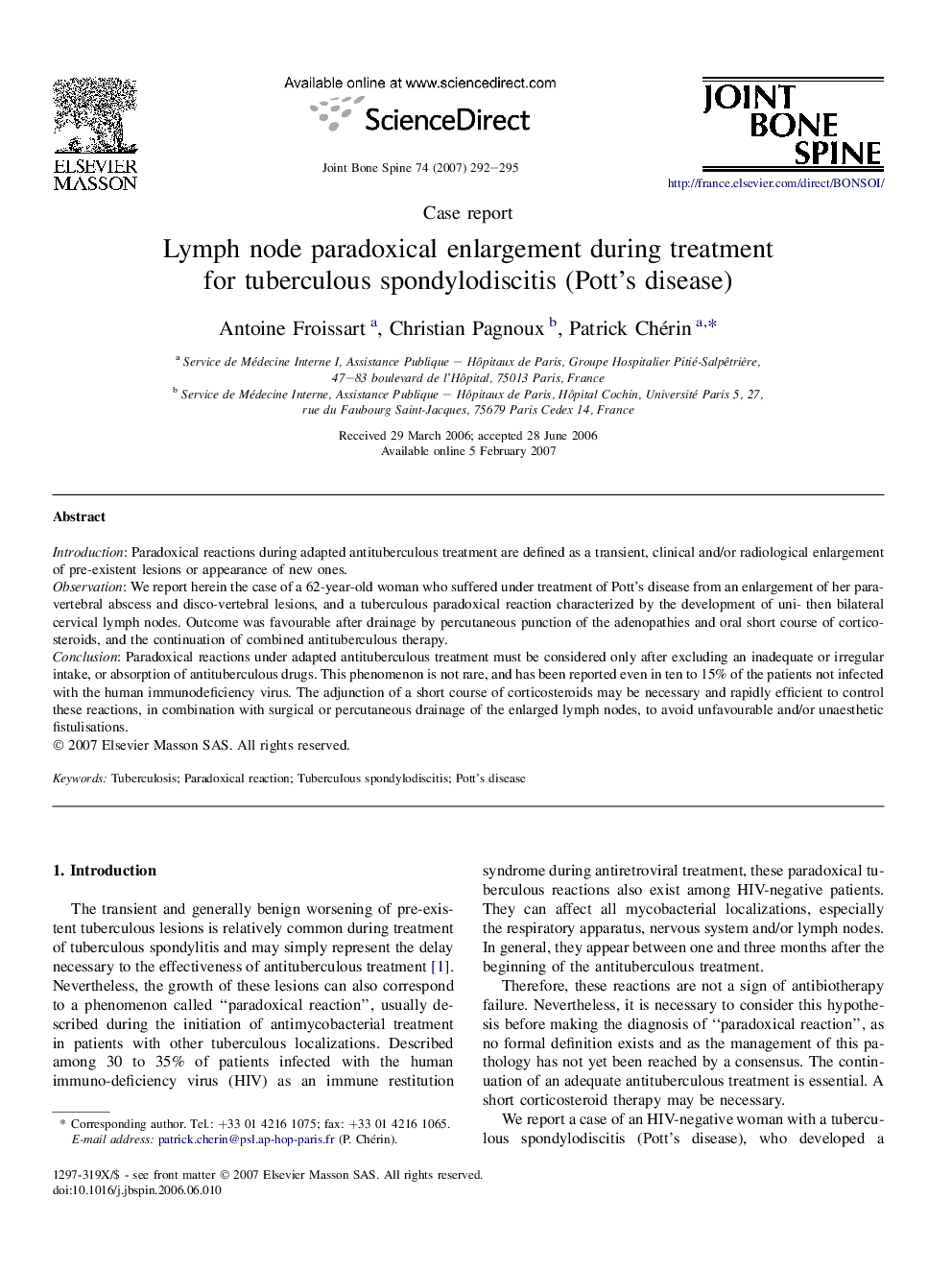| Article ID | Journal | Published Year | Pages | File Type |
|---|---|---|---|---|
| 3367532 | Joint Bone Spine | 2007 | 4 Pages |
IntroductionParadoxical reactions during adapted antituberculous treatment are defined as a transient, clinical and/or radiological enlargement of pre-existent lesions or appearance of new ones.ObservationWe report herein the case of a 62-year-old woman who suffered under treatment of Pott's disease from an enlargement of her para-vertebral abscess and disco-vertebral lesions, and a tuberculous paradoxical reaction characterized by the development of uni- then bilateral cervical lymph nodes. Outcome was favourable after drainage by percutaneous punction of the adenopathies and oral short course of corticosteroids, and the continuation of combined antituberculous therapy.ConclusionParadoxical reactions under adapted antituberculous treatment must be considered only after excluding an inadequate or irregular intake, or absorption of antituberculous drugs. This phenomenon is not rare, and has been reported even in ten to 15% of the patients not infected with the human immunodeficiency virus. The adjunction of a short course of corticosteroids may be necessary and rapidly efficient to control these reactions, in combination with surgical or percutaneous drainage of the enlarged lymph nodes, to avoid unfavourable and/or unaesthetic fistulisations.
